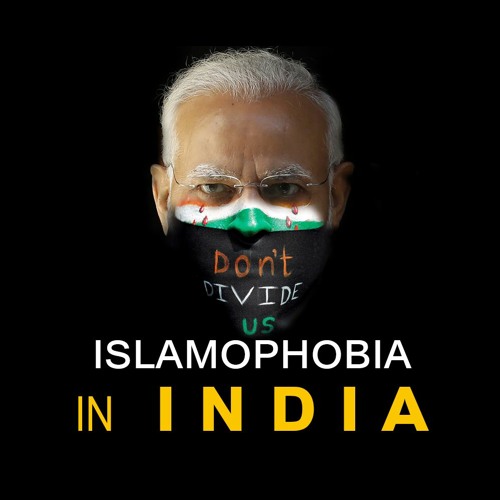Arnab Goswami, editor-in-chief of Republic TV and widely considered to be the Indian news media equivalent of Fox News host Tucker Carlson, asked his millions of viewers why I, an Australian journalist based in the United States, had not been arrested for allegedly “misreporting” hate crimes in India.
“My question is this – why isn’t Indian law taking action against CJ Werleman?” asked Goswami during a segment titled ‘Unfollow Twitter’ which was telecasted last Friday.
The point Goswami was driving home is why hadn’t Indian authorities laid charges against me, like it had against three Indian journalists, all of whom are Muslim – including Washington Post columnist Rana Ayub – and three Muslim members of Congress, for sharing a video on Twitter showing an elderly Muslim being assaulted by a Hindu gang in Haryana; an attack described by me, them, the victim and his family as a religiously-motivated hate crime, which was incomprehensibly denied by police in the Bharatiya Janata Party (BJP)-ruled state of Uttar Pradesh.
The Government seized on police denials to press charges against the journalists and congresspersons for “spreading misinformation aimed at stoking religious tensions”.
India’s The Wire magazine said that it is standing by its journalists who reported the attack, saying in a statement that this was “an attempt to criminalize the reporting of anything other than the official version of events” and that its reporting was “based on accurate and truthful reports, by many media organizations, of what the victim of the crime has himself said about the incident”.
But what is at play here is an orchestrated attempt by the Indian Government to cover-up and silence Muslims and others who speak out against the ever-increasing hate crimes committed by pro-Government Hindu nationalists against Muslims and other religious minorities in India – thus representing yet another dangerous turn in the road for the fate of the world’s largest democracy.
Not only is the Indian Government pressurizing Twitter to ban journalists and human rights activists who report anti-Muslim hate crimes, but Hindu nationalist organizations are also threatening the company with violence.
Last year, when Dr. Gregory Stanton warned that the “preparation” for genocide against Muslims in India and Kashmir is underway, the response from the international community could not have been more indifferent, despite Dr. Stanton being widely considered the pre-eminent authority on genocide and ethnic cleansing.
There are plenty of reasons to believe that his warning has now morphed into a gathering storm cloud which can be seen on the horizon. It is even reasonable to conclude that the situation faced by Muslims in India today is fast catching up to the reality endured by the Uyghur minority in China since 2017, with the comparisons becoming too hard to ignore.
Islamophobic conspiracies
Under Prime Minister Narendra Modi’s rule, imams are being criminalized and arrested on bogus charges; mosques are being attacked all over the country; and Islamophobic conspiracies have become the basis for new laws discriminating against Muslims. Interfaith marriages are being banned; Muslim deaths in custody are on the rise; and lynching attacks are occurring with greater frequency and ferocity. There have been 10 separate mob lynching attacks against Muslims since 1 May.
This escalation of hostility towards Muslims started with the passing of the Citizenship Amendment Act – which discriminates against Muslims having Indian citizenship – and the revocation of Kashmir’s semi-autonomous status. But today we are witnessing the ‘othering’ of the religious minority on all fronts and at all levels of Indian society.
Last month, Uttar Pradesh police arrested Umar Guatam, a Muslim convert who became an iman, after accusing him of forcibly converting 1,000 Hindus over the course of 35 years, despite not one of them ever alleging forced conversion or filing a complaint about being forced to accept Islam. Under the state’s draconian anti-conversion law, the burden of proof is not on prosecutors but on the Muslim accused of forcibly converting Hindus – thus forcing the Muslim to prove their innocence, rather than the state proving their guilt.
Anti-conversion laws go hand-in-hand with newly legislated ‘love Jihad’ laws, which prohibit inter-faith marriage and advance the Islamophobic conspiracy theory alleging that Muslim men are tricking Hindu women into marrying them as part of plot to transform India into an Islamic caliphate.
In New Delhi, Muslim street hawkers are being bashed and boycotted by Hindu competitors who have become radicalized by the ‘street vendor jihad’ conspiracy theory, which, of course, runs parallel to ‘land jihad’, ‘economic jihad’, ‘Corona-jihad’, ‘history jihad’ and ‘media jihad’ conspiracies.
When Muslims are attacked and lynched by Hindu gangs because of these hateful conspiracies, they do not have a sympathetic criminal justice system to rely upon. The country’s police departments are being radicalized by Hindu nationalist forces – a reality brought into view by the recent rise in the deaths and torture of Muslims in police custody.
A recent report into custodial torture and death across the world reveals that 1,731 people died in the custody of Indian security forces and correction officers in 2019, with most of the victims hailing from minority communities, particularly Muslims and Dalits.
It should also be noted that police officers participated in the killings of 52 Muslims during the 2020 Delhi Riot, with a fact-finding report citing “instances of sexual harassment of Muslim women by the cops and also instances of police engaging in direct violence and abuse”.
While these separate events on their own do not amount to genocide, what is clear is that the 2020s have come to represent the decade of living dangerously for 200 million Muslims in India.
*The writer is a journalist and activist against Islamophobia.
July 5. 2021
The viewpoints expressed by the authors do not necessarily reflect the opinions, viewpoints and editorial policies of Aequitas Review.


